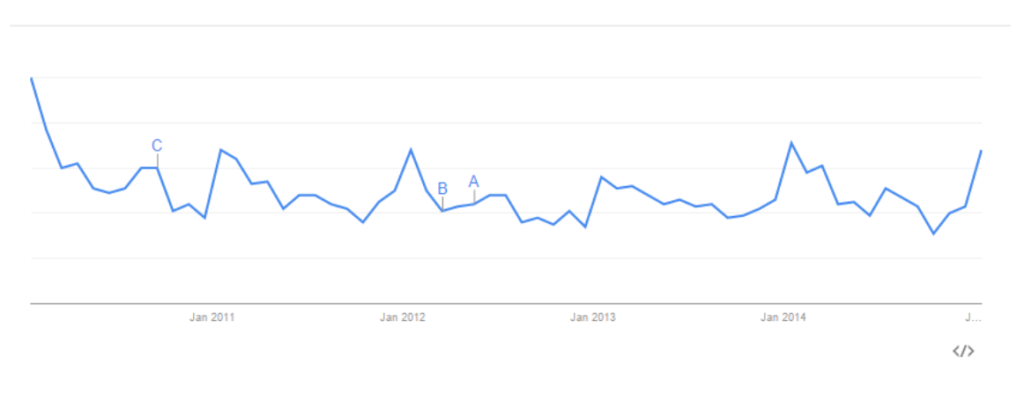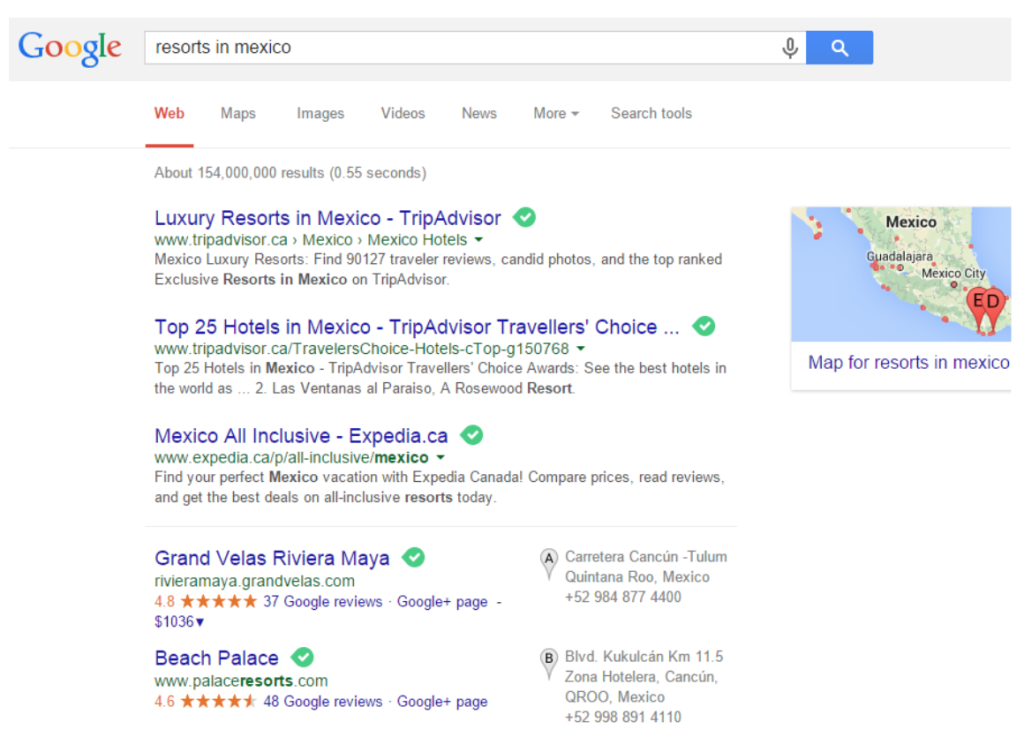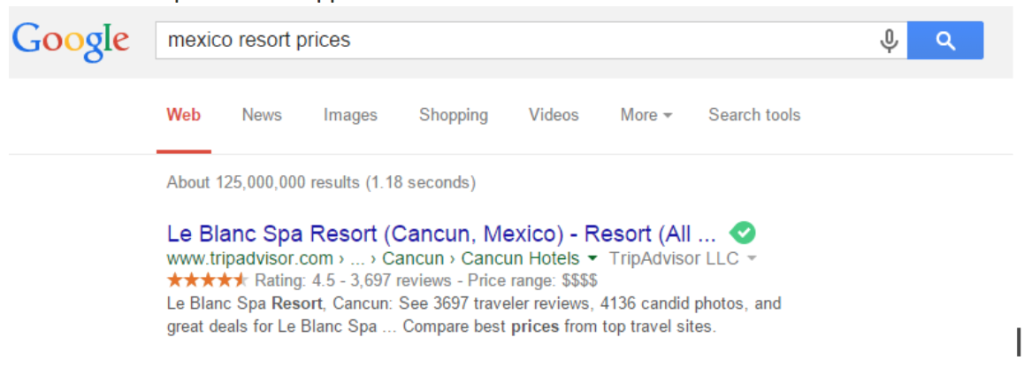When businesses, customers and colleagues alike jet off for their annual retreats, they all share one common similarity when discovering their destination of choice: Search engines have become one of the most dominant sources of information in regards to the travel industry. Search engines help consumers conduct research, discover, compare, and select destinations at a whim. Utilizing SEO for the travel industry not only places you ahead of your competitors, but also allows the right people to find you.

Why Focus On SEO In The Travel Industry?
Not every person when searching online for travel destinations knows exactly what resort, hotel, or activities they’d like to choose. The one certainty in their planning is the destination. Travel industry SEO ensures that people searching for specific locations will find your resort or hotel first.
Keyword: Mexico Resorts (2010-2015)

From the graph above we can note the interest over time is still strong for the broad term, “Mexico Resorts”. This is a perfect example of a discovery keyword where the destination is decided upon for the user, but the resort is still what they need to find. Travel SEO ensures that you are found first during discovery stage searches to drive people to your location.
Understanding Travel SEO
SEO is a complex practice which (when done right) places you at the top of search results for given keywords in a search engine. For the travel industry, this is crucial as it allows people and businesses to discover you quickly with the ease to book online.
SEO’s value runs far deeper than simply being found on Google at the point of booking. The customer’s journey to conversion is contingent on the ability to research, discuss, and read recommendations or reviews. With the capabilities of Google today, very little of this journey will need to be done elsewhere.
This is where we can identify some hardship when conducting SEO for the travel industry. With search rankings so vital across such a broad range of the customer journey, ranking well for the word ‘vacation’ simply isn’t enough.
A customer may search for ‘vacation’. However, at what point in the customer journey is that person traversing? Most often they’re in the very early stages where the thought of taking a break is more dominant. With this in mind, capturing people who use the search term ‘vacation’ has its value, but to a large extent it is the terminology that follows this, that comes further along in the journey, that has the potential to send traffic that will convert.
Long tail keywords become far more important in the travel sector; for example, ‘Mexico vacations’, ‘What’s the best resort in Mexico’, ‘Safest family vacation in Mexico’, ‘Honeymoon vacations in Mexico’. A brand’s understanding of its audience will better shape these keywords.
SEO Practices For The Travel Industry
Link Building
SEO in the travel industry is very dependent on high quality link building. During the research and identification phases, it is likely that potential travellers will traverse to external sources for what they perceive to be “unbiased” information, not to mention that a link from a trusted review site instantly puts you at a good stage. TripAdvisor and Yelp are good examples of this for unbiased recommendations (normally.. let’s try to pretend false reviews don’t exist for this article’s sake).
Local SEO
The beauty with local SEO and the travel sector is that almost always a local block will be present for searchers looking for resorts or hotels in an area. Here’s an example of a local block present in the Google.ca SERPs for “Resorts in Mexico”.

It is a complete advantage in local SEO if your business has physical locations, as local results remain more dominant for searchers from a visual standpoint, especially with the incorporation of Google+ reviews.
Content Strategy
Content marketing for SEO is one of the best ways to interact with potential customers and funnel them to your business by ranking organically for generic terms people search during the initial discovery stage. An example of a keyword that you could target would be “beaches in mexico” with content like, “10 Beaches in Mexico That Put Luxury Islands to Shame… Watch Out Bora Bora”. Zing.
Mobile
Mobile (or responsive) websites are the only option with the rise of Mobile and Tablet searches. Having mobile friendly websites not only tickles Google’s sweet spot for you, but it will also maximize usability across the board for your visitors (despite their devices). One major issue people face when adding mobile faces to their website is that they forget how important it is to remain simple in design with clear and easy call to actions.
Rich Snippets
With the introduction of rich snippets into Google’s SERPs, you can maximize exposure by providing vital information about a page within the SERP itself. This is essentially additional information that is displayed as part of your listing, including itineraries, prices, reviews and site links. They can make a big difference in your click through rate, and more importantly, give you the advantage against your competitors.
Here’s an example of rich snippets in action:

SEO For The Travel Sector: A Summary Of Sorts
The travel sector is a massive online marketing giant that generates billion upon billions in sales through millions of searches each month. While not all large travel brands are taking advantage of SEO to maximize growth, they are sure missing out on a ton of opportunities. The traveler’s journey online to discover their hidden gem opens a wide range of SEO possibilities.
For this reason alone every Travel business should be asking the question, “Why haven’t we maximized our exposure online with SEO?”
To find out more about SEO for your business, contact us today and we’ll help kickstart your online presence through one of our custom integrated online marketing strategies. After all, it’s time you kick back while we take care of things.


